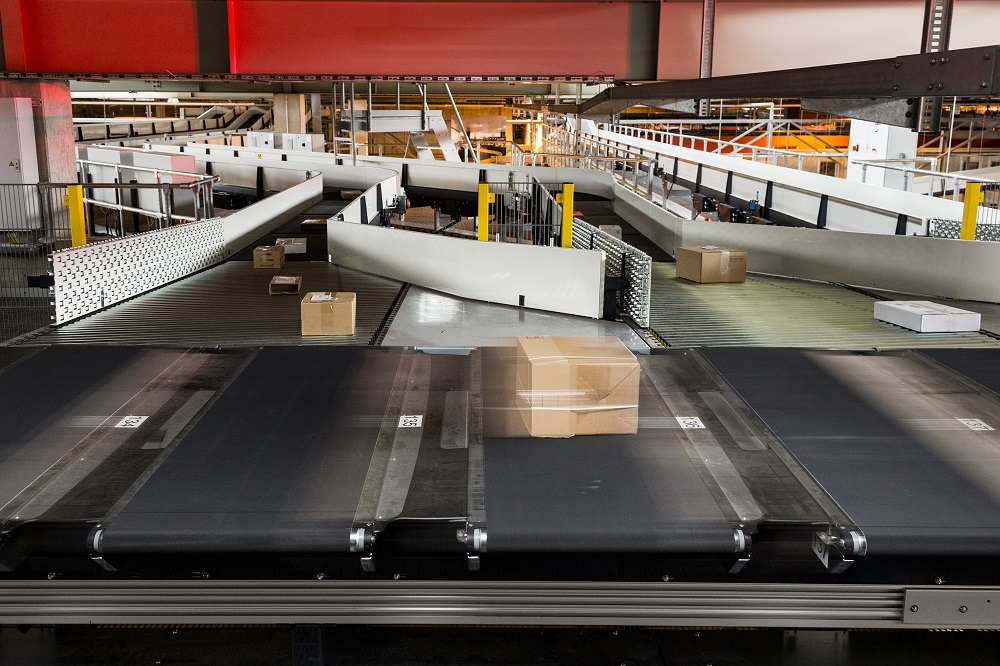Following the success of the exclusive September event showcasing the company’s wide range of industry expertise, Yale Europe Materials Handling brought a taste of ‘This is Yale’ to the renowned trade fair, LogiMAT the week before last.
“This is Yale was a superb demonstration of how vast and versatile Yale® industry solutions can be, so we were delighted that we were able to bring a small taste of this to the renowned LogiMAT trade fair,” said Iain Friar, Yale Brand Marketing Manager.
Guiding the future
After its successful debut in September, Yale brought the recently launched MC15 robotic counterbalance stacker to LogiMAT.
Just like the full Yale robotics range, the MC15 counterbalance stacker is driven by industry-leading Balyo geoguidance navigation technology. Unlike traditional automated guided vehicles, which rely on a dedicated physical infrastructure, Yale robotic models self-locate and navigate in real time. There’s no need to bury wires in the floor or mount reflectors on walls, which reduces the cost of installation and virtually eliminates ongoing structural maintenance. The solution is fully connected to the customer environment and can be integrated into current processes quickly and easily.
The innovative counterbalance truck is capable of both horizontal transport and vertical lifting. The truck’s ability to lift and lower loads means it can autonomously deposit and retrieve pallets with ease and a dual-mode design allows operators to regain control at the touch of a button. This gives customers the flexibility to accommodate unexpected requirements without the need for separate equipment.
“Our robotics solutions are designed to be more versatile than traditional AGVs and integrate into existing industry applications with ease,” said Ron Farr, Warehouse Solutions Manager for Yale. “The products were well received when they were revealed for the first time at This is Yale and we were pleased to introduce a wider audience to Yale robotics at LogiMAT.”
Yale products take pride of place
The new MR Series tilting mast reach truck joined the Yale line-up at LogiMAT. Sharing many features with the award-winning MR Series reach truck range, the new MR10-14E trucks benefit from a tilting mast, making them particularly well-suited to light-duty and low-height applications as well as those where space is at a premium. Ideal for smaller fleet users, the tilting mast reach truck is a cost-effective solution for customers operating in minimum aisle widths, with the narrow chassis facilitating in-aisle passing of two machines.
A specially configured Yale ERP30VL electric counterbalance forklift, featuring dual pedals for directional control and a double pallet handler, highlighted solutions for logistics applications. With its adjustable steering column, full suspension seat, ‘head up’ display to keep operators’ field of vision clear, and adjustable armrest with built-in hydraulic controls, operator comfort and efficiency are at the forefront of this truck. The dual pedal arrangement provides a natural, comfortable driving position, affording the operator additional control and responsiveness and making them more productive, especially when changes in direction are common occurrence.
The MS16S rider stacker was also present at the exhibition. Designed for stacking and retrieving goods over short and long distances, visitors were able to appreciate the rider stacker’s excellent operator visibility and ergonomics. The unique, adaptive seating design allows a choice of sitting, leaning or standing, offering maximum flexibility. While its narrow chassis width enables the MS Series to position, load and unload pallets in confined areas.
New MSX Series platform stacker preview
The next generation MSX Series platform stacker was previewed for the first time at LogiMAT. The dual-purpose warehouse machine combines the manoeuvrability of a pedestrian stacker with the travel speed of a ride-on pallet truck. As well as competitive lift and lower speeds, the new stacker boasts a load capacity of up to 2000kg and a maximum lifting height of up to six metres.
Branching out
As well as Yale experts on hand during the event to discuss application-specific solutions, representatives from the Yale dealer network were also present for all three days of LogiMAT.
A close partnership with knowledgeable and experienced dealers is key to the company’s success in the region with an extensive network of dealers offering local support. Yale dealers understand the pressure on businesses to respond quickly to peaks in demand or unexpected events and were available to discuss how Yale Short Term Rental options can help optimise fleets and boost materials handling capacity to keep operations running smoothly.
Iain concluded: “We really enjoyed working with our dealers, reuniting with our customers, and meeting with plenty of prospective customers in Stuttgart. LogiMAT is always an excellent fair to be part of, and this year’s event was no different. With our robotics solutions, power options, and a teaser of our range of materials handling equipment all on display at our stand, it has been a great way to start our year. We can’t wait to see what the rest of 2019 brings!”
For further information on the range of materials handling equipment from Yale visit www.yale.com.





